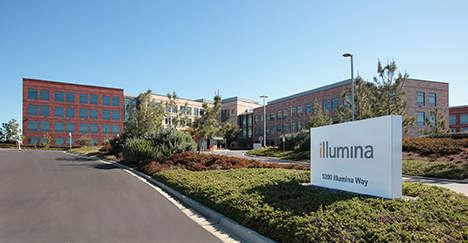
Financial terms of the transaction were not disclosed.
Based in San Diego, California, Edico Genome provides data analysis acceleration solutions for next-generation sequencing (NGS), delivering its DRAGEN Bio-IT platform to clinical, research and genome centers across the world.
Using field programmable gate array technology, the platform delivers better accuracy, speeds, scalability and costs, allowing customers of all sizes to focus on their priorities.
The set of DRAGEN pipelines can be run onsite, in the cloud or via a hybrid cloud blend, enabling organizations to scale as their throughput fluctuates.
Edico Genome president and CEO Pieter van Rooyen said as the scale of sequencing expands, decreasing the cost and time of analysis will be important to fuel the clinical adoption of sequencing.
“Our team is invigorated at the prospect of joining Illumina to combine our respective strengths to streamline and accelerate secondary analysis for the genomics community,” van Rooyen said.
A base of NGS customers has incorporated DRAGEN as a standard part of their sequencing workflow.
Illumina said the DRAGEN platform complements its sequencing portfolio and allows customers to benefit from reduced investment in compute infrastructure.
Illumina senior vice president of product development Susan Tousi said: “Our acquisition of Edico Genome is a big step toward realizing the vision of reducing sequencing data acquisition and analysis to a push-button, standardized process.
“We expect to build on the solid foundation of DRAGEN to deliver a more streamlined and integrated sample to answer experience for our customers.”
Illumina seeks to apply innovative technologies to the analysis of genetic variation and function.
The company’s initial products allowed researchers to explore DNA at an entirely new scale, helping them create the first map of gene variations related with health, disease, and drug response.



